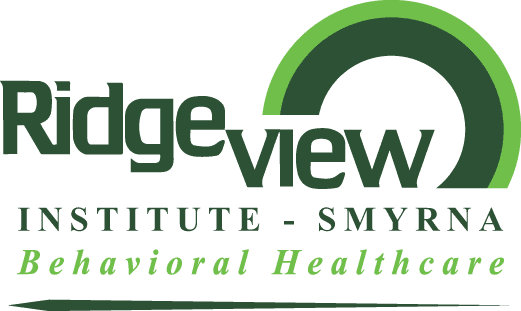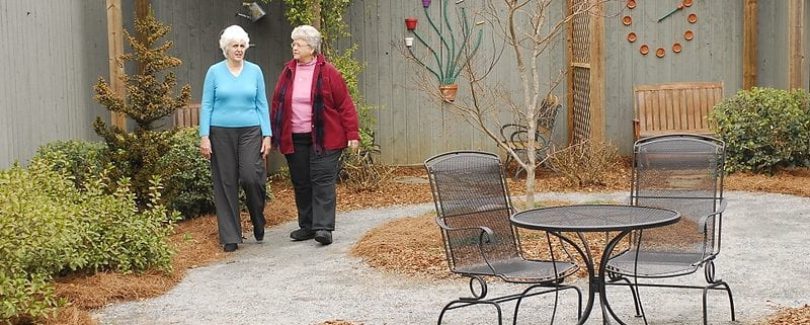Nancy L. Kriseman, L.C.S.W.
“We live by losing, leaving, being left and letting go, and sooner or later with more or less pain, we all must come to know that loss is indeed a lifelong human condition.”
Judith Viorst, author of Necessary Losses
No one is more familiar with the above words than elders, who, by virtue of their age, are survivors of loss and recognize that indeed loss is a lifelong human condition. The twenty-first century will see a tremendous growth in our elder population, from the current rate of about 12 percent to 20 percent, with the fastest growing segment of our population being the 85-plus group! Those of us who choose to work with this population know there are a plethora of issues and challenges that families face as their family members enter this new and unique stage of the lifecycle.
Understanding How Loss Impacts Elders Elders experience loss quite differently than younger people. Because of increased longevity, later life losses assume a central role in an elder’s life.
Older people experience accumulated losses, which are many and varied. Elders experience personal relationship losses of friends, siblings, children, and spouses; physical losses, such as loss of bodily functions, loss of energy, and loss of sensory deficits; or financial losses that result from retirement or health problems. All these losses can contribute to loss of their home, car, independence, and role.
Gerontologists have found that these accumulated losses lead to bereavement overload. Bereavement overload is defined as an experience that leaves an elder feeling overloaded by multiple losses, while having less emotional, physical and financial resources to cope with them. It is important to be aware that bereavement overload can contribute to depression and extended grief. Thus, therapists when working with elders around loss issues will need to help elders identify how bereavement overload is impacting their lives and then help them secure resources and support that address these challenges. Furthermore, it is important to educate the adult children about what bereavement overload is and how they might support their family member.
Generational differences are another example of how loss is different for elders. Mary Pipher in her book, Another Country, illustrates how elders live in “another country.” The ways of the past are much different from the present she states. Mary Pipher defines these generational differences as different landscapes between the generations. These landscapes impact the ways different generations adapt to situations, emotions, and events in their lives. She states that as therapists it’s important to help families understand how these different landscapes play out in their lives. For example: The landscape of death and coping with loss was much different during the years elders were young adults. Elders experienced loss early on in their lives, and to them, loss was just a natural part of life. Elders in their 80’s and 90’s were intimately involved in the entire dying process from onset of the illness to the burying of the body. On the contrary, the baby boomer generation and younger generations of today have had much less experience with death early on and tend to view death more from the sidelines, (ie. what they are exposed to on TV, movies etc.).
Another example of landscape differences involves how the different generations were raised to express feelings. The emotional landscape for elders in their 80’s and 90’s involved different rules and ways of expression. I have been told over and over by elder clients that when someone was dying or died, they were told to keep their grief to themselves and just “tough it out.” Thus, the idea of talking with a therapist or adult child about loss or death would be considered almost a sin. Yet the emotional landscape of the younger generations of today, tend toward being more open to expressing their feelings about death and loss to professionals, therapists, rabbi’s, ministers, in support groups and to friends. When the two meet, there can be a great divide!
So How Do Therapists Intervene????
While it may not be possible to merge the different landscapes of the generations, there are effective ways to help create more awareness and understanding of these differences. Therapists who work with elders and their families have the privilege of supporting and helping these families finish well.
Family therapist, Dr. Terry Hargrave, coined the phrase “finishing well” to mean coming to terms with the potential end of life. To encourage elders to finish well involves helping them recognize the meaning and value in their lives. To encourage families to finish well involves helping them attempt to come to terms with the eventual loss of their elder family member.
Therapists walk a fine line when helping elders and families finish well as generational differences can produce some intense feelings. Therapist are challenged with helping to validate their feelings and at the same time, temper some of the frustration, fear, sadness and anger they may both share.
One of the most effective approaches to helping families cope with the necessary losses that the elder years bring, is to utilize the genogram. The genogram is a wonderful tool that graphically helps elders and their families view their family tree on paper. It provides a way for elders and their families to talk about their lives together or to life review. Life review allows the elders and their families to validate their lives, and acknowledge the good, the bad and the ugly! It is not uncommon to discover unfinished business, (which are the emotional leftovers that still feel unsettled or cause frustration, stress, or depression.). It is important to note that sometimes there might be some unfinished business that cannot be resolved, and then it becomes the therapist’s job to help them make peace with or at least acknowledge the business that cannot be finished.
Another common issue that surfaces during life review is the role changes that occur in the family system. I have found many families become stuck as they try to hold onto the way their roles used to be. Elders fear losing control and being a burden. At the same time, adult children often experience conflictual feelings about the changes they see occurring in their elder family member and how to reconcile those changes in their hearts. They struggle with when to take over and when to let go. It is the goal of the therapist to help families shift into these different roles, not reverse the roles. Healthy role change involves allowing the elders and their families the opportunities to share what they miss about the old roles and give them permission to grieve.
Last, but not least importantly, is the recognition of the role that spirituality plays in this stage of life. Many studies have found elders embrace their spirituality at the end of life and are indeed even more spiritual at the end of life.
Spirituality helps them find meaning and hold onto hope. It frames their past, present and future. It helps them to shift from being outer focused to being more inner focused; to let go of ego and embrace soul.
I believe it is important for therapist to help elders find as many paths to their spirituality as possible. We need to keep them connected to their faith communities, to nature, to people, to their hearts. We need to pray with them, listen to them, sing with them and just “be” with them. We need to encourage families to connect to their own spirits and the spirits of their elders and shift from “doing” to “being.” We need to encourage families to utilize their spiritual resources and expand them as well.
As author Ram Dass says in his book, Still Here, “Wisdom requires that we relax our hold on our picture of how things ought to be and learn to make peace with things as they are. We can only do this moment by moment, here and now, responding with open hearts and minds to the changes that occur.”
It is the task of the therapist to help open the hearts of both the elders and their family members. Loss can be life changing and bring forth-incredible meaning and value. Old age does not have to be a “wait for the end” or a “time of despair.”
References:
Judith Viorst, Necessary Losses Fawcett Gold Medal, New York 1986 Ram Dass, Still Here Riverhead Books New York, 2000 Rachel Naomi Remen MD, My Grandfathers Blessings Riverhead Books New York, 2000 Randy Gerson & Monica McGoldrick Genograms.
Nancy L. Kriseman L.C.S.W. is a licensed social worker who specializes in counseling and consulting with elders and their families. She also provides training and in-services for long- term care environments. Ms. Kriseman has been in private practice for over 12 years and has worked in the field of aging for 21 years.
Ms. Kriseman has been on the faculty at Kennesaw State University as adjunct professor for 12 years and teaches two courses, “Aging and the Family” and “Death and Dying”. Ms. Kriseman is currently working with Health Professions Press on a book to be published entitled, “The Caring Spirit” for family and professionals caregivers, which will be available the beginning of 2005. Ms. Kriseman holds a Masters in Social Work and Specialist in Aging Degree from the University of Michigan, 1982. She has her BA degree from the University of Florida, which she obtained in 1979.
GERIATRIC CONSULTING SERIVCES INC.
Nancy L. Kriseman L.C.S.W. PO Box 8273 Atlanta, GA 31106
404-881-0313
[email protected]
Ridgeview Institute is a private, not-for-profit behavioral health care system with inpatient, partial hospitalization, and intensive outpatient programs for children, adolescents, adults and seniors with psychiatric and addictive problems. We are located at 3995 South Cobb Drive, Smyrna, Georgia 30080. For more information about Ridgeview’s programs and services, call (770) 434-4567 or 1 (800) 329-9775.
For more information about the Ridgeview Institute’s Treatment Programs, visit our website at https://ridgeviewinstitute.com/ or contact the Access Center at (770) 434-4567.

